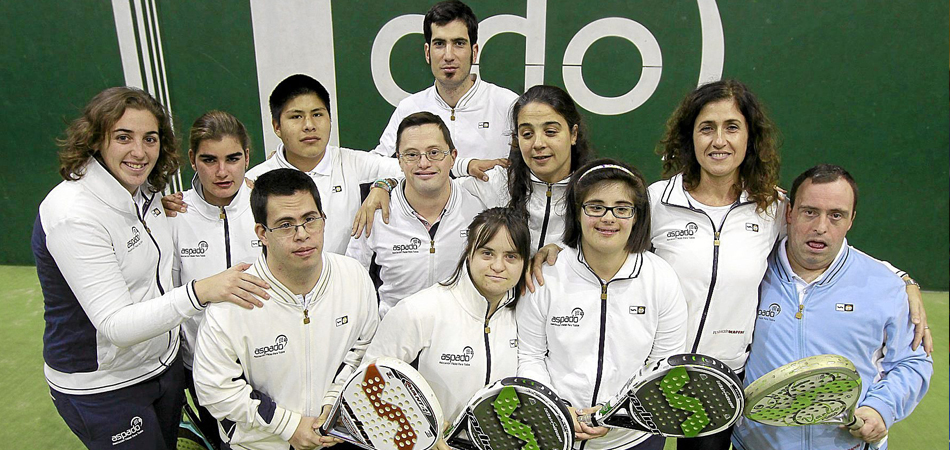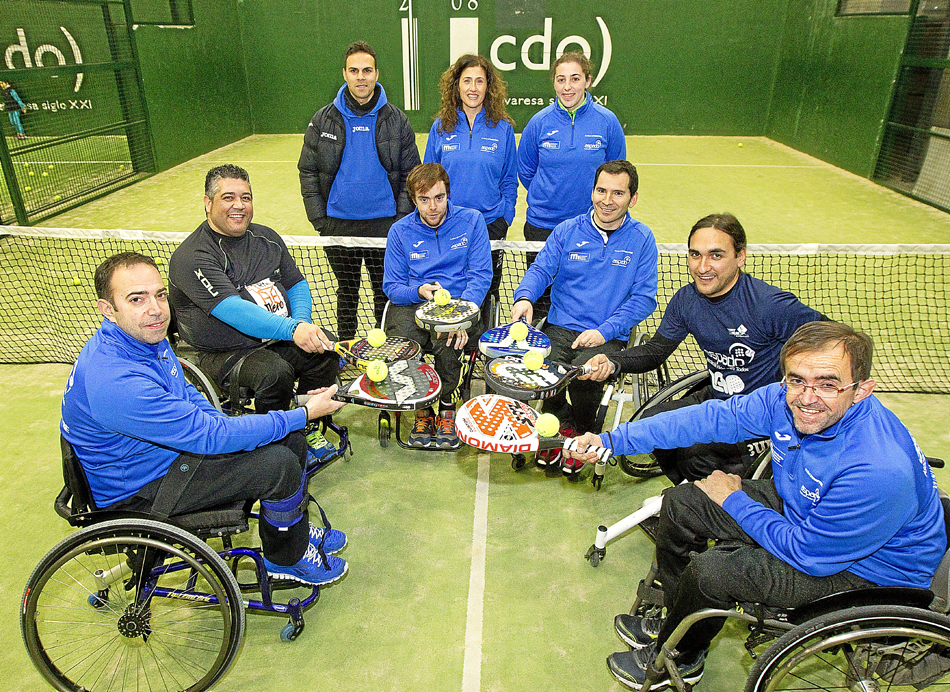For three and a half years the ASPADO schools are operating in the community of Castilla y León. Perseverance, motivation and love for this project were the keys to Tinita Manrique managed to put into operation the delegation in Castilian lands.
His direct relationship with disability, having a daughter with Aicardi Syndrome, added to his love for paddle tennis, were more than enough reasons to contact the Association.
"It was through social networks that I became aware of the existence of ASPADO, through a piece of news that a friend published on Facebook," Manrique commented.
"When I found out that adapted paddle tennis instructor courses were being taught, I did not hesitate for a minute to do so. I have been playing paddle tennis for more than 15 years and I have a direct relationship with disability, since my young daughter suffers from Aicardi Syndrome, one of those rare diseases that nobody knows ... or wants to know ”.
He recalled that it took him a whole year of conversations and practices in the schools that ASPADO has in the Community of Madrid to convince María de la Rocha (Kiki) to be able to bring the Association to the community of Castilla y León. “For me it was no effort having to go once a week from Valladolid to Madrid to work with them, quite the opposite. Disability hooks… ”
The first school
And so much insistence had its prize. In January 2013 Tinita Manrique managed to start up the first ASPADO school in Castilla y León. "It was the Adult school aimed at people with intellectual and physical disabilities in the standing mode and five months later we started up the second school, the Wheelchair School."
Currently ASPADOCYL has four schools in operation: two schools for adults with intellectual disabilities, one for children and another for wheelchair users, all of them based in Valladolid.
"There are about 15 hours a week and more than 100 people who are benefiting from this Association and we also work with an occupational center," said the professional.
Regarding the work methodology, he explained that it is the same that is applied in all ASPADO schools and the monitors are trained in the Association's courses. "They are classes equal to those that any" conventional "person would receive, adapted to the learning difficulties of each student. We group students by ability, never by disability. Treating them as normally as possible is our hallmark ”.
The only wheelchair school
ASPADOCY is the only wheelchair school that the Association has. "We started working in May 2013 with this modality and this last year has been very fruitful since we went from 4 to 11 students practicing this sport in a chair," said Tinita.
The schools operate in the CDO Covaresa club in Valladolid. The delegate emphasized that “changing clubs has been an important step. The ease they have to park, get to the facilities and be able to store the competition chair has been fundamental in their decision to be able to practice paddle tennis ”.
Tinita also had words of appreciation towards the professionals who carry out the teaching work. “The choice of the technical team has also been fundamental so that everything flows and things are done well. Javier Escribano Hernández, Marta González de la Fuente and Álvaro Martínez Velasco They are not only magnificent trainers for conventional paddle tennis but also for adapted paddle tennis. They have the technique, patience and sensitivity necessary to work in this field ”.
Regarding the students, he said that “it is very difficult to talk about a particular student, but I would like to highlight the loyalty of those who started with us three years ago. I could highlight the evolution that autistic children have had, because getting them to want to come to class is already a triumph and then the case of three siblings, each with a different degree of disability, who enjoy practicing paddle tennis ”.
Those interested in obtaining more information about the hours and operation of the ASPADO schools in Castilla y León can consult this link on our website or contact us by phone.


